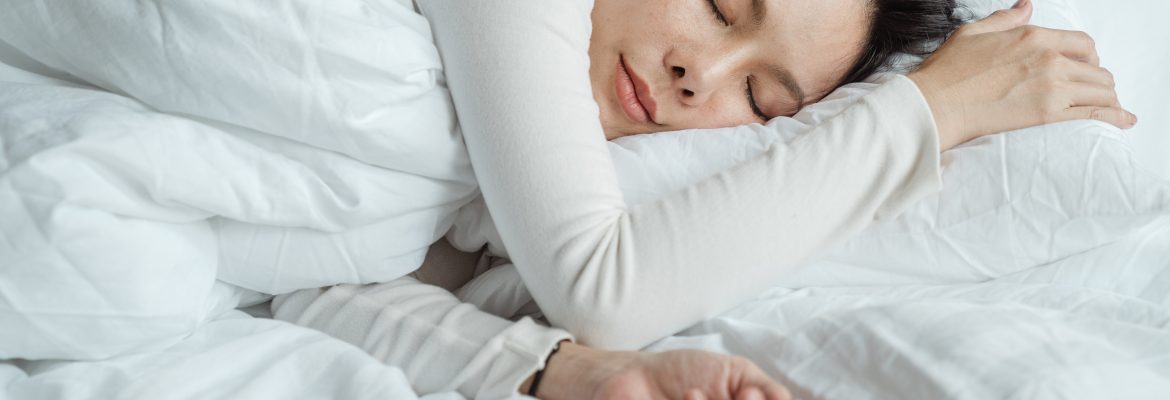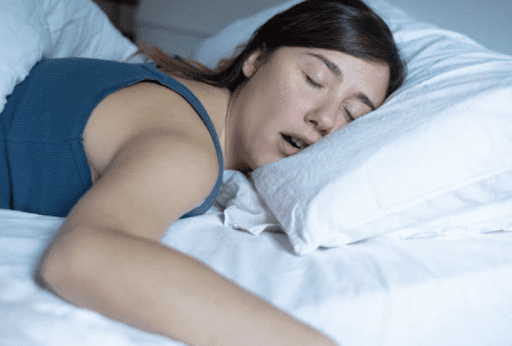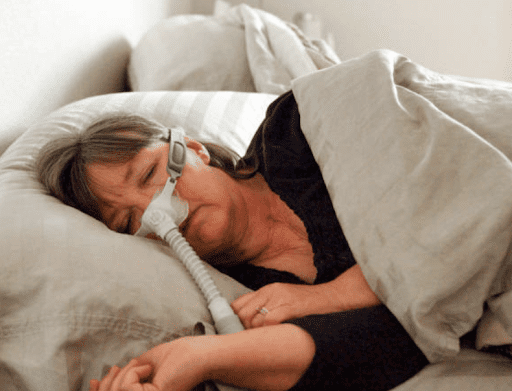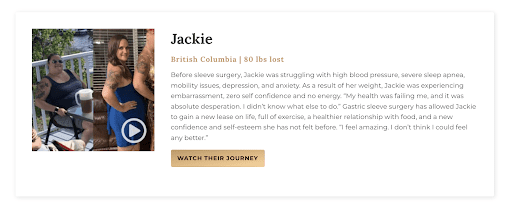
Can You Have Sleep Apnea Without Snoring?
Table of Contents:
Last Updated on October 18, 2023
Think snoring is the only red flag for sleep apnea? Think again.
Look, millions of people around the world struggle with sleep apnea, and while many of them could drive their family crazy with snoring, not all do.
Yes – you can be as silent as a ninja at night, and still have sleep apnea without snoring.
Key Takeaways
- Sleep Apnea and Snoring: Not all individuals with sleep apnea snore. While snoring is a common symptom, especially in cases of Obstructive Sleep Apnea (OSA), it’s possible to have sleep apnea without noticeable snoring.
- Types of Sleep Apnea: Sleep apnea can be classified into three main types: Obstructive Sleep Apnea (OSA), Central Sleep Apnea (CSA), and Complex Sleep Apnea Syndrome (CompSAS). OSA is the most common form.
- Symptoms of Sleep Apnea: Apart from snoring, other symptoms include excessive daytime sleepiness, morning headaches, gasping or choking episodes during sleep, fragmented sleep, and mood and cognitive changes.
- Weight and Sleep Apnea: There’s a strong link between being overweight and an increased risk of developing OSA. Weight loss can improve or even resolve sleep apnea symptoms in obese individuals. The National Library of Medicine highlighted the connection between obesity and sleep apnea in a 2017 study.
- Gastric Sleeve Surgery: Gastric sleeve surgery, or sleeve gastrectomy, is a bariatric procedure that promotes weight loss and can address obesity-related health issues, including sleep apnea. Many patients report improved sleep after undergoing the surgery.
- Impact of Sleep Apnea on Health: Sleep apnea can lead to various health problems, including cardiovascular diseases, diabetes, hypertension, and stroke. It also affects an individual’s quality of life, causing chronic fatigue, impaired cognitive function, and mood disturbances.
- Treatment Options: Treatment options for sleep apnea include Continuous Positive Airway Pressure (CPAP) therapy, oral appliances, lifestyle modifications, and weight loss surgery like gastric sleeve surgery.
Statistics and Insights:
- Millions of people worldwide struggle with sleep apnea.
- A 2017 study by the National Library of Medicine titled “Obstructive Sleep Apnea and Obesity: Implications for Public Health” emphasized the connection between obesity and sleep apnea.
- A study in the ATS journal titled “Effect of Weight Loss on Upper Airway Anatomy and the Apnea-Hypopnea Index” supported the positive effects of weight loss on sleep apnea severity.
- A 2021 study titled “Psychological Well-Being in Obstructive Sleep Apnea Syndrome Associated With Obesity” found that OSA severely affects psychological well-being.
Sleep apnea (also known as OSA or Obstructive Sleep Apnea) causes disruptions in sleep patterns and can lead to a range of health issues. According to the Mayo Clinic, one of the major symptoms of sleep apnea is loud snoring.
But there are other symptoms to look out for too such as:
- Gasping for air during sleep
- Waking up with a dry mouth
- Having a headache in the morning
It’s possible for you to present with all of or none of these symptoms and still have sleep apnea. In this article, we’ll explore exactly why you can have sleep apnea without snoring, the effect sleep apnea can have on your quality of life and some ways to tackle it.
Scroll down to learn:
- The symptoms of sleep apnea
- If you can you have sleep apnea without snoring
- The effect of your weight on sleep apnea
- How sleep apnea diminishes the quality of life

Can you have sleep apnea without snoring?
While many associate sleep apnea with the nightly noise of snoring, it’s not the sole sign of this pesky sleep disorder.
So, to those scratching their heads, asking, “Can you have sleep apnea without snoring?”
The answer is yes, it is possible to have sleep apnea without noticeable snoring.
Let’s delve into this topic further to understand the relationship between sleep apnea and snoring.
What is sleep apnea?
Sleep apnea is a sleep disorder characterized by repeated interruptions in breathing during sleep.
It can be classified into three main types:
- obstructive sleep apnea (OSA)
- central sleep apnea (CSA), and
- complex sleep apnea syndrome (CompSAS)
OSA is the most common form, where the airway becomes partially or completely blocked during sleep, leading to pauses in breathing.
What is the connection between snoring and sleep apnea?
Snoring is a common symptom of sleep apnea, particularly in cases of OSA.
When the airway becomes partially obstructed, the air flow becomes turbulent, resulting in the vibration of soft tissues in the throat, which produces the sound of snoring. Snoring is often associated with OSA due to the blockage of the upper airway.
However, it is crucial to note that not all individuals with sleep apnea snore. In some cases, the airway obstruction may be subtle or located deeper within the throat, resulting in minimal or no snoring. This can make it challenging to identify sleep apnea without proper diagnosis and evaluation.

Other symptoms of sleep apnea
While snoring is a prominent symptom of sleep apnea, there are other indicators that can help identify the presence of this sleep disorder, even without noticeable snoring.
These symptoms may include:
- Excessive daytime sleepiness: Sleep apnea disrupts the normal sleep cycle, leading to poor sleep quality and fragmented sleep. As a result, individuals with sleep apnea often experience excessive daytime sleepiness, always feeling tired or fatigued during the day.
- Morning Headaches: Sleep apnea can cause morning headaches due to intermittent drops in oxygen levels and disruptions in sleep patterns.
- Gasping or Choking Episodes: Sleep apnea episodes are characterized by pauses in breathing followed by gasping or choking sensations as the body tries to restore normal airflow.
- Fragmented sleep and restlessness: Sleep apnea can lead to frequent awakenings during the night, causing a sense of restlessness and an overall feeling of unrefreshing sleep.
- Mood and cognitive changes: Sleep deprivation caused by sleep apnea can lead to irritability, mood swings, difficulty concentrating, and memory problems.
Tip: Speak with your doctor if you think you might have sleep apnea. Consider taking an at-home sleep apnea test.
Can your weight cause sleep apnea?
Let’s talk heart-to-heart about sleep apnea and its link to weight.
Studies have shown a strong link between being overweight and an increased risk of developing obstructive sleep apnea.
In fact, the National Library of Medicine published a study in 2017 titled “Obstructive Sleep Apnea and Obesity: Implications for Public Health,” which highlights the connection between obesity and the narrowing of the upper respiratory tract, leading to sleep apnea.
Without getting lost in the jargon, when you have extra padding around areas like your mouth or throat, it can make your airway feel a bit snug. Breathing during sleep can then become a challenge paving the way for a sleep disorder like sleep apnea.
And it’s not only sleep apnea that can be the problem.
| The study also shows that “People who are obese (with a BMI of more than 30) with shorter sleep duration have twice as many subjective sleep problems compared to non-obese people.” |
Research has shown that losing weight can improve or even resolve sleep apnea symptoms in obese individuals. Weight loss reduces fatty deposits in the neck and tongue which can contribute to restricted airflow.
The ATS journal recently published a paper titled “Effect of Weight Loss on Upper Airway Anatomy and the Apnea-Hypopnea Index,” which supports this. The study showed that weight loss reduced volumes of several upper airway soft tissues in subjects with obesity and OSA.
Weight loss interventions, including lifestyle modifications, diet changes, exercise, and bariatric surgery like the sleeve have demonstrated positive effects on sleep apnea severity. However, achieving and sustaining significant weight loss can be challenging for many individuals.
Also read: The pros and cons of weight loss surgery
Diagnosing sleep apnea
If you suspect you may have sleep apnea, it is essential to seek a proper diagnosis from a healthcare professional. Sleep apnea is typically diagnosed through a sleep study, also known as polysomnography, which involves monitoring various aspects of your sleep, including breathing patterns, oxygen levels, brain activity, and heart rate.
During the sleep study, the absence or presence of snoring, along with other sleep apnea symptoms, will be evaluated to determine the severity and type of sleep apnea. This comprehensive assessment is crucial to accurately diagnose sleep apnea, even in cases without noticeable snoring.
Treatment options for sleep apnea
Treating sleep apnea isn’t just about silencing the snores – it’s about giving yourself better sleep and boosting your overall well-being.
The primary goal of treatment is to ensure adequate airflow during sleep, reducing the number of apneic events and improving oxygen levels.
The treatment options for sleep apnea may include:
- Continuous Positive Airway Pressure (CPAP): CPAP therapy involves wearing a mask over the nose or nose and mouth during sleep, delivering a continuous flow of air pressure to keep the airway open.
- Oral appliances: Oral appliances, such as mandibular advancement devices, can help keep the airway open by repositioning the jaw and tongue during sleep.
- Lifestyle modifications: Making lifestyle changes, such as losing weight, avoiding alcohol and sedatives before bed, sleeping on your side, and practicing good sleep hygiene, can help reduce the severity of sleep apnea symptoms.
- Weight loss surgery: In cases where sleep apnea is associated with obesity, weight loss through bariatric surgery, such as gastric sleeve surgery, can be an effective treatment option. Sustainable weight loss can help alleviate the symptoms of sleep apnea by reducing the amount of excess weight that contributes to airway obstruction.
Also read: Who is eligible for gastric sleeve surgery?
Gastric sleeve surgery and sleep apnea
Gastric sleeve surgery, also known as sleeve gastrectomy, is a transformative bariatric procedure. Think of it as a bit of stomach reimagining, where a part is removed to craft a sleeker, sleeve-like pouch.
Sleeve surgery aims to promote weight loss and address obesity-related health issues. While gastric sleeve surgery offers numerous benefits, one of its significant advantages is its potential impact on sleep apnea.
In fact, after undergoing sleeve surgery, many patients exclaim that rejuvenated sleep tops their list of life-altering improvements. It’s not just talk – it’s a major transformative journey towards better rest.
Hear what our patients have to say directly from them by watching our sleeve patient stories.

Effects of gastric sleeve surgery in treating sleep apnea
If poor sleep from sleep apnea is disrupting your life and you are also overweight, gastric sleeve surgery could be a potential solution. But before committing to any kind of surgery it’s important to be aware of the pros and cons.
Some of the pros of gastric surgery for OSA include:
- Sustained weight loss and reduced airway obstruction: Gastric sleeve surgery promotes substantial weight loss, which can lead to a reduction in fat deposits around the upper airway. By decreasing the obstruction in the respiratory tract, gastric sleeve surgery can alleviate or even eliminate sleep apnea symptoms.
- Improvement in sleep quality: The significant weight loss achieved through gastric sleeve surgery can lead to improved sleep quality. With fewer interruptions to breathing during sleep, individuals can experience more restful and uninterrupted nights, resulting in increased daytime alertness and improved overall well-being.
- Resolution of obesity-related health issues: Gastric sleeve surgery not only addresses sleep apnea but also improves or resolves other obesity-related health conditions. These include hypertension, type 2 diabetes, cardiovascular diseases, and metabolic disorders. By tackling these underlying health issues, the surgery can contribute to a better overall health profile.
The impact of sleep apnea on health and quality of life
Sleep apnea is characterized by recurrent episodes of complete or partial airway obstruction during sleep, resulting in disruptions to breathing patterns.
These interruptions can lead to fragmented sleep, reduced oxygen levels, and excessive daytime sleepiness.
Sleep apnea has been associated with an increased risk of various health problems, including:
- cardiovascular diseases
- Diabetes
- Hypertension
- Stroke, and more
In addition to the physical health risks, sleep apnea can significantly impact an individual’s quality of life.
Chronic fatigue, impaired cognitive function, mood disturbances, and decreased productivity are common among those with untreated sleep apnea. Therefore, finding an effective treatment to manage sleep apnea is crucial for improving both health outcomes and overall well-being.
A 2021 study titled “Psychological Well-Being in Obstructive Sleep Apnea Syndrome Associated With Obesity” found that OSA severely affects psychological well-being. The study assessed the level of psychological well-being in fifty-two individuals affected by OSA syndrome and obesity through the Psychological General Well-Being Index. It found that the participants’ scores were below the normative cut-off in all components, except for depression symptoms.
You can have sleep apnea without snoring and sleeve surgery could help you get rid of it
Gastric sleeve surgery has become a beacon of hope for many wrestling with sleep apnea and obesity. It’s more than just shedding the pounds, it’s about freeing the airway and potentially bidding adieu to sleep apnea symptoms.
By promoting significant weight loss and reducing upper airway obstruction, gastric sleeve surgery can effectively alleviate or even resolve sleep apnea symptoms.
Consulting with a qualified bariatric surgeon is crucial to assess individual suitability, discuss personalized treatment plans, and weigh the pros and cons based on specific circumstances. Not everyone qualifies for weight loss surgery. Speak to one of our program advisors today to find out if sleeve surgery is right for you.
Ultimately, it’s worth prioritizing those vital Z’s, not only to have the energy to embrace each day, but to ward off other health hiccups down the road.
If you’re considering weight loss surgery, below are some next steps you can take:
- Take a quick online quiz to see if you qualify for sleeve surgery
- Request to Join the Sleeve Clinic’s Private Facebook Group
- Speak with a Sleeve Clinic Program Advisor
- Follow The Sleeve Clinic on Instagram
- Calculate Weight Loss From Gastric Sleeve Surgery
Please note that the information provided in this article is for general informational purposes only and should not replace medical advice. It is always recommended to consult with a qualified healthcare professional for personalized guidance regarding weight loss surgery. If you are considering sleeve surgery you can book a consultation with our Weight Loss clinic in Toronto here: Contact us!
References
- Mayo Clinic – Sleep Apnea
- Cleveland Clinic – Sleep Apnea
- Johns Hopkins – 4 Signs You Might Have Sleep Apnea
- Journal of Sleep Medicine and Disorders – Obstructive sleep apnea and obesity
- Journal of Respiratory Critical Care Medicine – Effect of Weight Loss on Upper Airway Anatomy
- Sleep Apnea – Diagnosing Sleep Apnea
- Frontiers in Psychology – Psychological Well-Being in Obstructive Sleep Apnea Syndrome Associated with Obesity





